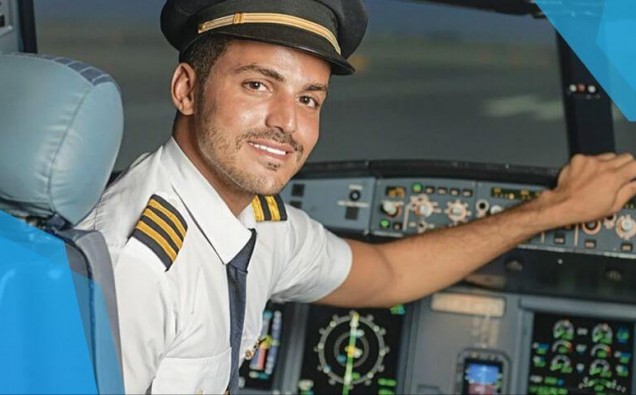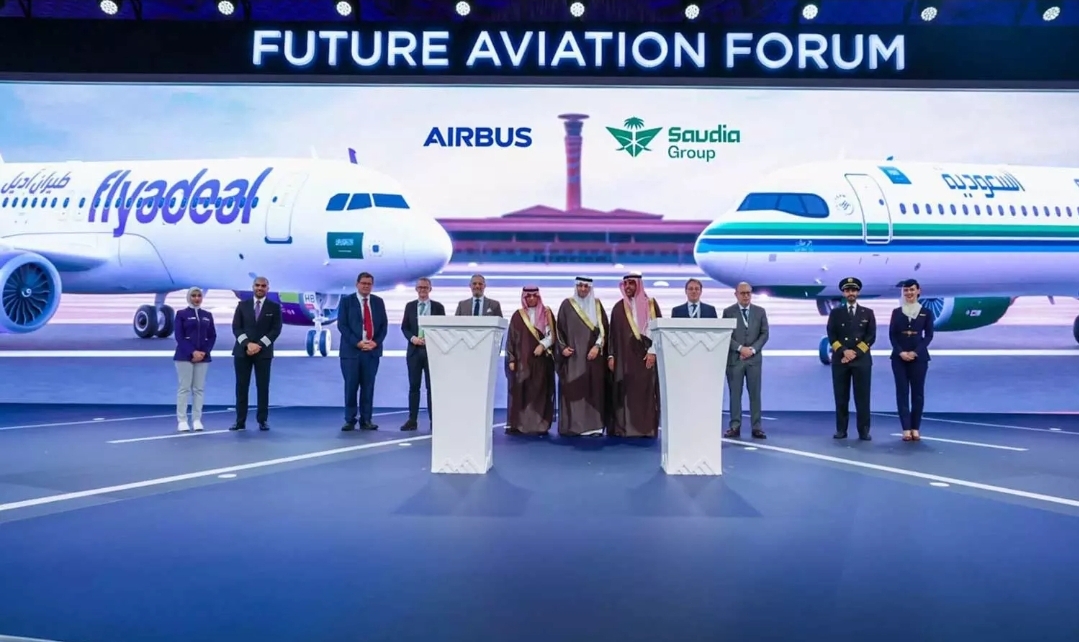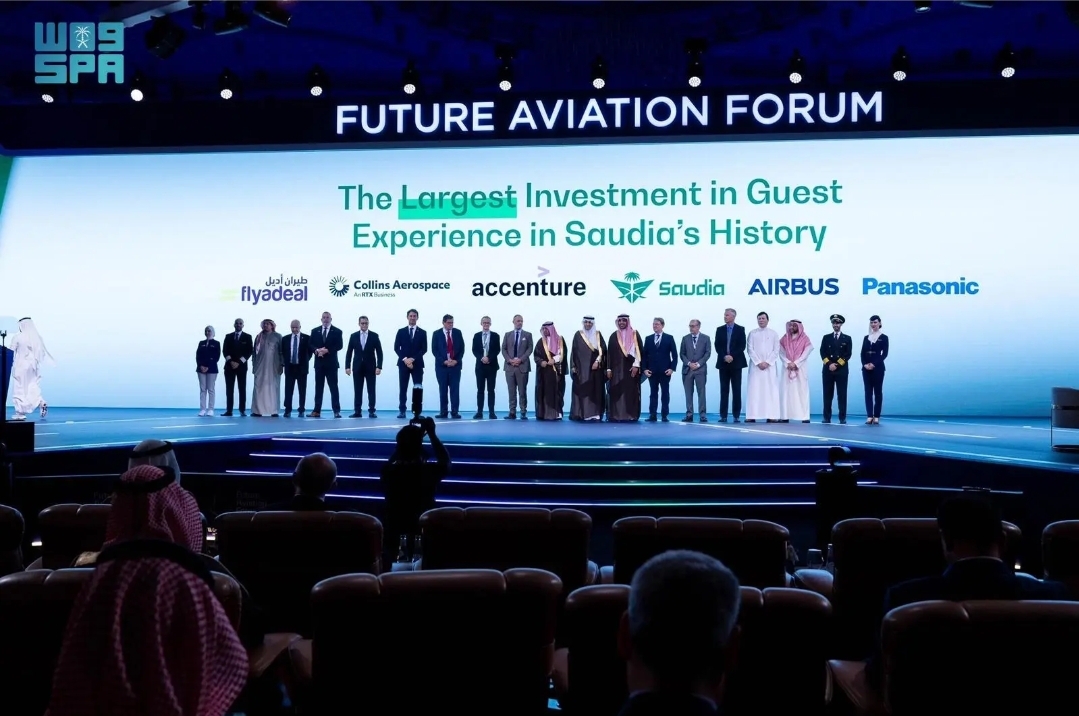The King Abdulaziz International Conference Center in Riyadh, Saudi Arabia hosted the third edition of the Future Aviation Forum 2024 from May 20–22, 2024, with the theme “Elevating Global Connectivity.” Under the auspices of King Salman bin Abdulaziz Al Saud, custodian of the Two Holy Mosques, the three-day event was inaugurated by H.E. Eng. Saleh bin Nasser Al-Jasser, Minister of Transport and Logistic Services & Chairman of the Board of directors of the General Authority of Civil Aviation (GACA). Over 30 government ministers, 77 heads of international air carriers, and leaders of civil aviation authorities attended the meeting, which was hosted by GACA. Around 5000 leaders and specialists from the aviation sector representing more than 120 nations took part. 300 speakers, including ministers, representatives from participating nations’ aviation authorities, heads of aviation organizations, and executives from Saudi and foreign businesses, participated in 73 distinct dialogue sessions during the course of the three-day event. The subjects included human capabilities, the industry’s future, procedures for cooperation, the network of civil aviation, sustainability, innovation, technology, and economic potential.
In addition to the corporations and foreign institutions signing 102 agreements worth a total of SAR 75 billion, many significant decisions were taken. A few of the particular agreements include:
- Kiribati, Grenada, Malawi, Romania, Belize, São Tomé and Príncipe, Lithuania, El Salvador, Albania, Mozambique, Eswatini, Cambodia, Brunei, and Dar es Salaam are among the countries with which GACA has signed air service agreements.
- Saudia and Riyadh Air, the two national airlines, will collaborate on pilot, crew, and other aviation staff training subsequent to PIF-owned Riyadh Air’s MoU with Saudi Academy, which is linked with the Saudia Group.
- An agreement was reached between Tibah Airports Company and Tadawul listed Al Hokair tourism and development company, which could see Al Hokair offer F&B, entertainment, and catering services at Tibah’s Prince Mohammed International Airport in Madinah.
- Bombardier and the Saudi oil giant Aramco inked an agreement for the purchase of two brand-new, super mid-sized Challenger 3500 business jets, with delivery slated for 2025 and 2026.
- Hill International and Dammam Airport Co. signed a consulting services agreement for the management of DACO projects. Additionally, a partnership agreement with Bahrain Airport Co. was established.
However, the largest contract was signed with Airbus. Yes, the Saudia Group has firmly ordered an additional 105 A320neo family aircraft. The Saudia Group is comprised of the national flag carrier of the Kingdom of Saudi Arabia, SAUDIA, and the low cost carrier Flyadeal Group. There are 93 A321neo and 12 A320neo aircraft in the order. By implementing the Saudi National Tourism Strategy, which aims to attract over 150 million tourists by 2030, the Kingdom of Saudi Arabia is paving the way for global aviation. Engineer Ibrahim Al Omar, Director General of SAUDIA Group, commented on the announcement, saying, “Saudia has ambitious operational objectives to meet growing demand. We are increasing flights and seat capacity across our existing 100+ destinations on four continents, with plans for further expansion. The progress of Saudi Vision 2030 is attracting more visits, tourists, entrepreneurs and pilgrims each year. This motivated our decision to secure this significant deal, which will create jobs, increase local content and contribute to the national economy”.
In this way, 102 memorandum of understanding and agreements covering a variety of topics were signed at the event, including advanced air mobility, cargo & logistic services, aviation services, and aircraft purchase.
As part of the meeting, GACA launched its inaugural State of Aviation report, which revealed that Saudi Arabia’s aviation industry supported 958,000 employments and contributed around $53 billion to the country’s economy. In order to grow the business aviation and private aircraft industries in the kingdom by 2030, GACA also released a general aviation roadmap. This roadmap included designating 6 airports for general aviation and adding 9 lounges to commercial airports, with the goal of generating 35,000 new jobs.
Minister of Transport and Logistic Services & Chairman of the Board, GACA Saudi Arabia H.E. Eng. Saleh bin Nasser Al-Jasser said, “Key topics for the future of aviation were covered at the event, including investing in human capital, growing business prospects, innovation and technology, and sustainability. According to the International Air Transport Association’s (IATA) Air Connectivity Index, Saudi Arabia rose to 13th place today. He also mentioned the establishment of Riyadh Air, whose objective is to link Riyadh with more than 100 international locations, and the master plan for the King Salman International Airport project, which would boost the airport’s capacity to accommodate over 100 million passengers by 2030.”
While we were talking more about the Future Aviation Forum 2024, I had the opportunity to speak with Saudi Arabia’s commercial pilot “Pilot Wesam al Najjar.”
Q.) In what ways does the Future Aviation Forum assist the aviation sector in Saudi Arabia?
Pilot Wesam: The Future Aviation Forum offers the Saudi aviation sector a valuable opportunity to exhibit its strengths, cultivate strategic alliances, and investigate inventive approaches to augment operational efficacy and passenger experience. Through involvement in this forum, stakeholders in Saudi aviation can remain up to date on industry advancements and support the expansion and sustainability of the sector. The enthusiastic support from all sectors in Saudi Arabia will be instrumental in realizing these benefits.
Q.) Will the tourism industry be impacted by Future Aviation Forum? If so, how?
Pilot Wesam: The tourism sector stands to benefit from the Future Aviation Forum’s ability to facilitate greater travel experiences, increased accessibility, and improved connectivity. The event can boost tourism, draw more tourists, and solidify Saudi Arabia’s standing as the region’s top travel destination by fostering conversations on aviation trends and innovations. Over 100 million passengers were carried by Saudi aviation sector in 2023, making up 5% of the 2 billion passengers that fly worldwide each year. This noteworthy contribution emphasizes how important aviation is to the nation’s tourism and economic growth. The assistance of the Saudi government and sectors will be instrumental in attaining these benefits for the tourism industry.
Q.) How can FAF 2024 support regional carriers like SAUDIA, Flynas, and Flyadeal, as well as the recently launched airline Riyadh Air?
Pilot Wesam: FAF 2024 can help regional carriers by offering a forum for knowledge sharing, networking, and exposure to best practices in the aviation industry. Regional carriers can participate in the forum to learn about emerging trends, engage with industry peers, and develop strategies to improve their competitiveness and service offerings. The support will assure the success and effect of regional carriers, contributing to the Middle East’s air passenger flow of 400 million and the GCC region’s GDP contribution of 4.4%.
Q.) Are these kinds of events beneficial for the Saudi Aviation Sector, in your opinion?
Pilot Wesam: Certainly, events such as the Future Aviation Forum play an important role in promoting the Saudi aviation sector. They encourage innovation, collaboration, and knowledge sharing, cultivating a culture of continuous improvement and propelling the sector’s growth and sustainability. The strong support from our country Saudi Arabia and the Ministry of Transportation emphasize the significance of such events in influencing the future of aviation in the country. The aviation business generates more than $3.5 trillion in global GDP; hence such events are critical to the industry’s growth.
Pilot Wesam concluded by saying, “Aviation is the backbone of global connection, allowing people and things to travel throughout the world. Aviation, as a central hub, integrates time, service, quality, and industry trends, amplifying the momentum of movement. This multimodal strategy (technology and air travel) combines virtual and actual mobility, utilizing transportation and technology to propel advancement. In order to position the Saudi aviation industry for sustained growth and sustainability in the years to come, events such as the Future Aviation Forum play a crucial role in promoting innovation, teamwork, and knowledge exchange.”
By: Rida Khan (Aviation Author)
Instagram A/c: aviationauthor.ridakhan
Note: Future Aviation Forum 2024 Photo credit to Saudi Press Agency (SPA)




















